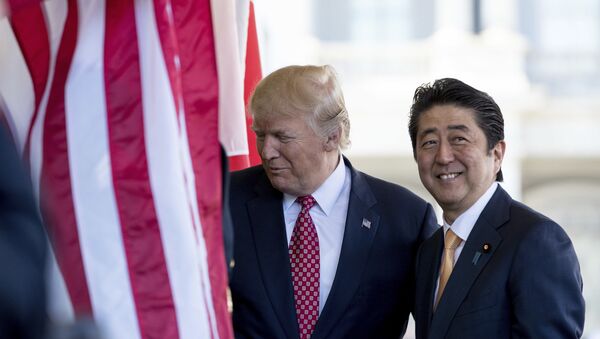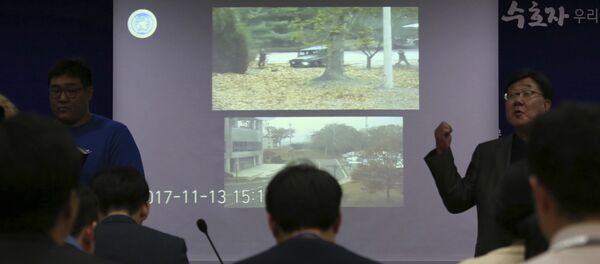Sputnik: Why is the US approving this sale right now when we see the two Koreas gradually coming to terms?
Scott Snyder: I think that that system is driven particularly by overflight of North Korean missiles over Japanese territory, which really heightened concerns among the Japanese public and also has stimulated the government of Japan to seek greater missile defense capabilities in order to respond to the possibility of the North Korean missile coming to the Japanese mainland.
Sputnik: But would this exacerbate chances of peace in the region?
Sputnik: What are Washington's gains from militarizing the region likely to be?
Scott Snyder: Washington right now is supporting the temporary easing of tensions around the Olympics, but it is going to remain concerned about the trajectory of North Korean missile development and really explicit targeting of the United States as a goal. The North Korean negotiator yesterday in talks at the DMZ with South Korea indicated that North Korean nuclear capabilities were targeted directly at the United States. He said that the Chinese, Russians and South Koreans didn't have to worry about them.
Sputnik: Do we see any visible end to this brinkmanship at all?
Scott Snyder: The opening of a channel for dialogue between North and South Korea could also potentially lead to other forms of dialogue around the nuclear issue. Thus far in the talks that occurred yesterday the North Koreans essentially rejected the South Korean effort to raise the nuclear issue. Most significantly, if there are senior officials from North Korea who attend the Olympic Games in South Korea, there will be further opportunities to raise this issue at high levels. Frankly, the only way out in terms of reducing tensions around the peninsula is going to be through the initiation of a dialogue process including the US and North Korea.
Sputnik: In this current situation, if we think of Japan, what comes to mind is its pacifist constitution. Weapons sales to Japan — how disquieting is this fact?
Scott Snyder: Another aspect of the significance of the weapons sale to Japan is that it is focused on homeland defense and it actually reduces to some degree some of the push within Japan for retaliatory strike capability which has emerged on the agenda for discussion as a result of the feeling of threat around the expansion of the North Korean missile capabilities.
Sputnik: What impact could the new deal between Japan and the US have on relations between Washington and Seoul?
Scott Snyder: I believe that South Korea has also historically been concerned about Japanese capabilities. Right now it is important from a South Korean perspective that the capabilities that Japan is gaining at present are focused on missile defense rather than retaliatory capabilities that could be used by Japan to reach out and strike neighboring countries. The important thing from a US perspective is that as the North Korean threat capability expands, the US is going to want to see Japan and South Korea also working together in order to counter that threat and that has a side effect of reducing the risk of rising tensions between South Korea and Japan.
The views and opinions expressed by Scott Snyder are those of the analyst and do not necessarily reflect those of Sputnik.





